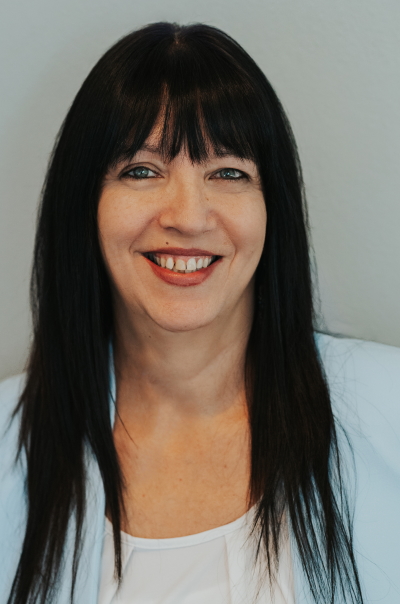Tracy Kieffer at Spokane-based Sister Sky Inc. believes Native entrepreneurship education works best coming from other Native people.

Kieffer, a citizen of the Spokane Tribe of Indians and deputy program manager and tribal lead at Sister Sky, said that Indigenous trainers and educators better understand Native entrepreneurs. They’re also more familiar with the challenges Native entrepreneurs face, including the lack of access to capital and navigating what educational options are available during non-traditional “nine to five” work hours, as well as finding many of the services in the first place.
“We come from Indian Country; our current trainers all live on reservations,” Kieffer said. “I think we have different perspectives because we know what barriers there are.”
Want more news like this? Get the free weekly newsletter.
Sister Sky Inc. provides workshops and technical assistance for Native small business owners through a continued contract with the Small Business Administration that began in 2019. Last year, the group provided 20 virtual workshops to more than 650 entrepreneurs from 143 tribes, Kieffer said.
The SBA recently renewed that contract as part of a $1.1 million round of funding for Native-led entrepreneurship initiatives and outreach announced last week.
The money accounts for grants or contracts awarded to seven organizations across the country: Kapolei, Hawaii-based Council for Native Hawaiian Advancement; Mesa, Ariz.-based National Center for American Indian Economic Development; Portland-based Our Native American Business Network; Durant, Okla.-based Rural Enterprises of Oklahoma; Seattle-based Two Rivers Community Development Corp.; Houston-based RedWind; and Sister Sky, Inc.
The funding aims to “narrow the gap” in business development services provided by the SBA to Native American businesses, according to the SBA.
“The selected awardees have demonstrated a track record of service working with Native American small businesses and have also demonstrated they can provide the range of management and technical assistance services that microenterprise small businesses need in this critical moment,” said Mark Madrid, Associate Administrator for the Office of Entrepreneurial Development. “That means we will be using all of the tools at our disposal to assist in the growth and vitality addressing the unique challenges facing Native American small business owners.”
Kieffer said the contract afforded Sister Sky the chance to build relationships between Native-owned small businesses and the SBA so that more Indigenous business owners took advantage of the available resources.
Sometimes that involves getting Native business owners into workshops to let them know what’s available to them, or helping SBA employees understand how best to address the needs of Native entrepreneurs, Kieffer said.
“I think we’re another avenue to market for SBA and what’s available through those programs: There’s the 8(a) program, there’s gobs of educational programs offered for free,” Kieffer said. “We’ve workshopped with urban Natives that until they took our class didn’t realize their SBA resource was two blocks away.”
Sister Sky itself is an 8(a) certified company. The group began its journey toward federal contracting through one of the SBA’s Procurement Technical Assistance Centers. Coincidentally, the PTAC is also how fellow awardee Two Rivers CDC got started, says executive director Daucey Brewington.
Brewington brought nine years worth of experience running a PTAC to bear in creating Two Rivers CDC as a way of providing similar assistance to Native-owned companies, specifically in getting tribal enterprises and Native businesses ready for federal contracting.
“So far, we do things like work with business plan development, certification, assembling and interpreting documents,” Brewington said. “We do a lot of Section 17 work, for example.”
Section 17 refers to a part of the Indian Reorganization Act of 1934 that allows a tribe to charter a company directly with the Department of the Interior. Those typically nonprofit companies are tax-exempt, which then ensures that for-profit companies beneath them are also tax-exempt, Brewington said.
“I’ve worked with tribes to make sure that their constitutions and their charters for Section 17 meet all of the requirements for SBA programs,” Brewington said. “I cover soup tonuts when it comes to business, and that’s what my grant is for.”
Two Rivers’ grant, now in its second “option year,” covers one half-time employee and travel expenses, which has given the organization the ability to do more “face to face” outreach, Brewington said.
“That’s been really good for us,” Brewington said. “The biggest challenge for a lot of entrepreneurs is education — getting out in front of the people that need the information.”
Kieffer said the SBA’s efforts to get the word out about Sister Sky’s programs through Native speakers was creating a “positive impact,” but she hopes for even more in the future.
“I think had we not been out there providing this, we know that 657 Native Americans may not have found assistance,” Kiefffer said. “But there can always be more help out there, I think. During COVID, I think a lot of people are looking toward entrepreneurship as a way to sustain, especially people with children and ones that have to travel to work. I think we’re going to see more entrepreneurs and they're going to be reaching out for more technical assistance.”
